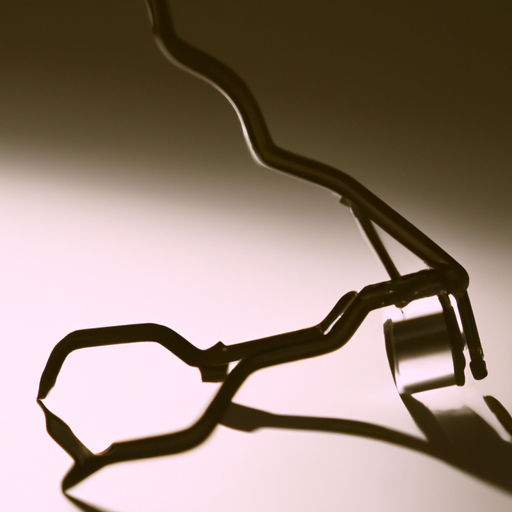Hey there, let’s talk about eyelash extensions!
As someone who loves to enhance my lashes, I understand the excitement of getting eyelash extensions. However, it’s important to also understand the potential risks involved when it comes to allergies. Eyelash extensions involve applying small fibers to your natural lashes, and this can lead to a range of allergic reactions for some individuals.
So, before we dive into the world of eyelash extensions, we need to know what allergies are and why they’re a concern.
Oh boy, do I know what it’s like to have an allergic reaction to eyelash extensions! Let’s talk about the symptoms you might experience if you’re allergic to these little beauties.
Itchy, swollen, and watery
The most common symptoms of an eyelash extension allergy are itchy, watery, and swollen eyes. You’ll feel like rubbing your eyes, but please, don’t do it! The itchiness will only get worse and your eyes will become even more swollen and red. Additionally, you might notice the skin around your eyes becoming inflamed and tender. It doesn’t look pretty, let me tell you.
Burning sensations and hives
Another symptom of an allergy to eyelash extensions is the feeling that your eyes are on fire. You will feel a burning sensation, and sometimes, you might experience hives on the eyelids or around the eyes. These hives can be really uncomfortable and sometimes even painful.

If you have a severe allergy to eyelash extensions, you might experience trouble breathing. This is a very serious symptom and can lead to anaphylaxis, a potentially life-threatening condition. It’s important to seek medical attention immediately if you experience any difficulty breathing or other severe allergic reaction symptoms like swelling in the throat or tongue.
If you’re experiencing any of these symptoms, remove your eyelash extensions immediately and contact a medical professional. It’s important to properly diagnose and treat the cause of your allergic reaction to avoid any serious complications. For more information on eyelash extensions, check out this article.
Diagnosing and Treating an Eyelash Extension Allergy
Unfortunately, if you are experiencing any of the symptoms associated with an eyelash extension allergy, it is important to seek medical attention right away. A physician or optometrist can perform a comprehensive eye exam and determine the root cause of your symptoms. This may involve a patch test or skin prick test to determine which allergen is causing your reaction.
If it is determined that you are, in fact, allergic to eyelash extensions, there are several recommended treatments that your doctor may prescribe. This could include over-the-counter or prescription antihistamines to reduce itching and swelling, corticosteroid eye drops to reduce inflammation, or even allergy shots for long-term relief of your symptoms.
If you are diagnosed with an eyelash extension allergy, it’s important that you take steps to avoid exposure to this allergen in the future. This could mean discontinuing use of the product that caused your reaction, or switching to a hypoallergenic formula that is less likely to cause a reaction. Additionally, it’s important to avoid rubbing or touching your eyes during or after an allergic reaction, as this can cause further irritation and discomfort.
Preventing Eyelash Extension Allergies
Hey there, it’s important to know that preventing an allergic reaction to eyelash extensions starts with choosing the right product. So, what can you do to avoid a nasty reaction?
Tips for Choosing the Right Product
First, do your research! Before booking your appointment, make sure the salon you are going to uses high-quality and reputable lash extension products. These products should be approved by the FDA and labeled as hypoallergenic.
Secondly, if possible, opt for natural or organic lash extension products. They are generally gentler on the skin and less likely to cause irritation or an allergic reaction.
Thirdly, ensure that the lash technician you choose is qualified and experienced in applying lash extensions. They should be able to make a recommendation for products that are suitable for your specific eye shape and skin type.
Suggestions for Avoiding Reactions
So, you’ve done your research, you’re happy with the salon and the products, what’s next? Even when using high-quality products, there are still some additional measures you can take to avoid an allergic reaction.
Firstly, it is important to remove all makeup and clean your lashes thoroughly before your appointment. This helps to ensure that there are no chemical reactions between product ingredients and makeup products already on your eyelashes.
Secondly, be sure to avoid touching your eyes after getting lash extensions. The oils from our fingers can cause irritation and disrupt the adhesive bond of the lash extensions.
Lastly, if you do experience any symptoms of an allergic reaction, such as itching or redness, immediately remove the lash extensions and apply a cold compress to the affected area. Consult a medical professional if symptoms persist.
Overall, preventing an allergic reaction to lash extensions starts with choosing the right product and takes some extra care and attention to maintain. With the right precautions, however, it’s definitely worth it to have those fluttering lashes you’ve always wanted!
Wrapping it Up: The Lowdown on Allergies to Eyelash Extensions
As someone who has suffered from an allergic reaction to eyelash extensions in the past, I know firsthand how uncomfortable and frustrating it can be. Fortunately, there are steps you can take to prevent and manage these allergies.
First and foremost, it’s crucial to be aware of the symptoms of eyelash extension allergies and to seek professional help if you suspect you may be having a reaction. Your symptoms may range from mild irritation to severe swelling and even vision problems.
If you are diagnosed with an allergy to eyelash extensions, there are a variety of treatments available, from over-the-counter antihistamines to prescription eye drops. Your doctor or allergist can help you determine the best course of action for your individual needs.
Of course, it’s always better to prevent an allergic reaction from occurring in the first place. This means being meticulous about choosing the right product and taking extra care when applying and removing your eyelash extensions. You may also want to consider patch testing, in which a small amount of the product is applied to your skin to check for any potential reactions.
Remember, if you do experience an allergic reaction to eyelash extensions, it’s not the end of the world. With proper diagnosis, treatment, and prevention, you can enjoy the beauty benefits of these popular products without any unnecessary discomfort or risk.
